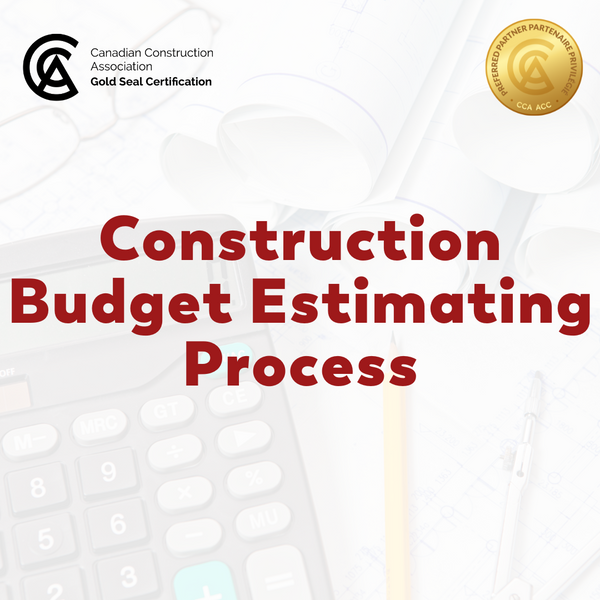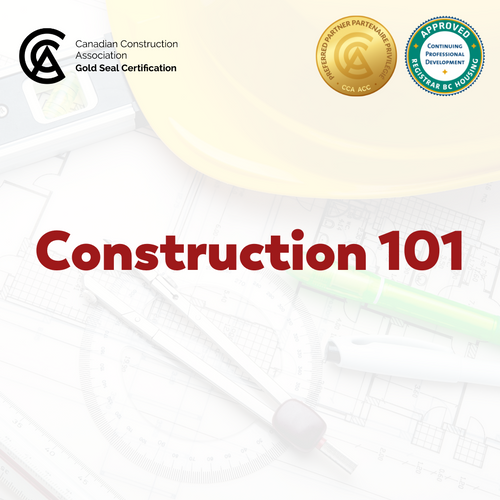Product Overview
The key to a successful financial outcome with respect to a construction project often lies in the accuracy of budget forecasting which took place during the planning stages. Only accurate budgets can establish clear feasibility. Budget estimates allow the comparative allocation of funds and inform intelligent design decisions. But why do so many projects exceed their initial budget forecasts? What techniques are used when project parameter and design information is sparce? How do budgets develop to become more accurate reflections of real time expenditures?
Whenever we make a purchasing decision our primary concern soon falls to cost. In the same way, once a construction need, desire or investment opportunity is established, the next question is often “what will that cost, can we afford it, and does this make economic sense?” Budget estimates answer all of those questions, but only if proper techniques and procedures combined with intelligence and expertise are employed, and only if the budget continues to develop in harmony with available design information.
This course will provide the participant with a comprehensive overview of various processes and procedures used to establish budget estimates for construction projects.
This course will cover:
- Defining and categorizing construction budgets
- Reasons for accurate construction budgets
- Establishing feasibility
- Hard vs soft costs
- Various budgeting techniques
- Cost planning, cost analysis and lifecycle cost comparisons
- Value engineering
- Analogous, Parametric and Elemental Processes
- Uniformat & CIQS elemental formats
- Class of budget estimates as established by Canadian contract documents
Learning Outcomes:
Upon successful completion of this course, participant will be able to:
- Clearly define construction budgeting.
- Identify and categorize several types of construction budgets.
- List several budget estimating processes and procedures.
- Differentiate between several common processes.
- Understand timelines with respect to budget development.
- Implement the use of budget estimating tools.
Who should attend?
Construction industry professionals, project managers, estimators, owners and consultants should understand how a budget develops and where the pitfalls and risks lie with respect to construction budget estimating.
Industry Credits
- This course is worth 3 gold seal credits.
Course Format
- Live, Online, Instructor-led training. This is a highly interactive course facilitated by the instructor on a video platform.
- You will be expected to have your webcam on during the whole class and participate in break-out rooms, small-group discussions, and other activities with your instructor and classmates during the course.
- Course access information will be provided to you in advance of the training by your instructor
- Full attendance and participation in all sessions is mandatory for course completion. If a student misses a class session, we are unable to transfer registration or provide a partial refund of the registration fees.
Course Requirements (Technology & Participation)
This course requires full face-to-face interaction and participation from both the instructor and students. In order to attend, you’ll must make sure you have the following:
- Computer or laptop with webcam (webcams are mandatory): This course will involve 100% on-screen interaction with your instructor and classmates, reading/viewing on-screen content like slides or videos, and interacting via typing with questions or responses. For this reason, you must have a webcam and use a full computer/laptop, and we do not permit students to attend using a tablet or cell phone.
- A quiet space with minimal distractions: Please plan to be fully engaged in the class, and clear your work schedule just as you would for attendance in an in-class program.
Refunds or Transfers:
- Five (5) or more business days before the course start date: Full refund of registration fees or can be transfers to a different course date.
- Less than five (5) business days before the course start date and course no-shows: No refunds or transfers to future course dates.
- For a complete document on the NRCA Education Policies, click here.
Other Policies
- Substitution of another member of your company/team is permitted up to the course start date for no additional fee.
- Unless otherwise stated, every person able to see, hear, and observe the virtual course sessions must be a paid participant. Non-compliance of this requirement will result in removal from the course. Refunds will not be issued to students who are removed from the course for non-compliance of this requirement.
- If the NRCA has to postpone or cancel courses due to insufficient enrolment, NRCA will refund the registration fee or, if possible, the attendee may choose to move to an identical session in the future.








